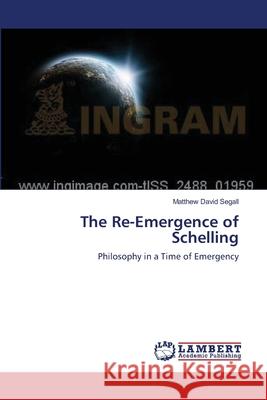The Re-Emergence of Schelling » książka
The Re-Emergence of Schelling
ISBN-13: 9783659524240 / Angielski / Miękka / 2014 / 72 str.
Friedrich Wilhelm Joseph Schelling (1775-1854) spent his philosophical career striving to realize the Absolute system, but he did so in full recognition of the fact that the Absolute is not finally a logical system, but a living actuality. Accordingly, for Schelling, "life is the criterion of truth." Though his critics often dismissed his thought as fragmentary and protean, C. S. Peirce, in a letter to William James, remarked that it was precisely Schelling's "freedom from the trammels of system" and willingness to approach philosophical ideas experimentally rather than dogmatically that he admired most: "In that, he is like a scientific man." This book, written in the context of a resurgence of interest in Schelling's work, as well as during a planetary ecological emergency and geo-political crisis, draws upon the deep well of his thought in the hope that it can aid human civilization's attempt to re-imagine itself. Schelling's philosophy provides many of the anthropological, theological, and cosmological resources necessary for bringing forth an alternative form of modernity no longer bent on the destruction of earth and the disintegration of human communities.
Friedrich Wilhelm Joseph Schelling (1775-1854) spent his philosophical career striving to realize the Absolute system, but he did so in full recognition of the fact that the Absolute is not finally a logical system, but a living actuality. Accordingly, for Schelling, "life is the criterion of truth." Though his critics often dismissed his thought as fragmentary and protean, C. S. Peirce, in a letter to William James, remarked that it was precisely Schellings "freedom from the trammels of system" and willingness to approach philosophical ideas experimentally rather than dogmatically that he admired most: "In that, he is like a scientific man." This book, written in the context of a resurgence of interest in Schellings work, as well as during a planetary ecological emergency and geo-political crisis, draws upon the deep well of his thought in the hope that it can aid human civilizations attempt to re-imagine itself. Schellings philosophy provides many of the anthropological, theological, and cosmological resources necessary for bringing forth an alternative form of modernity no longer bent on the destruction of earth and the disintegration of human communities.











